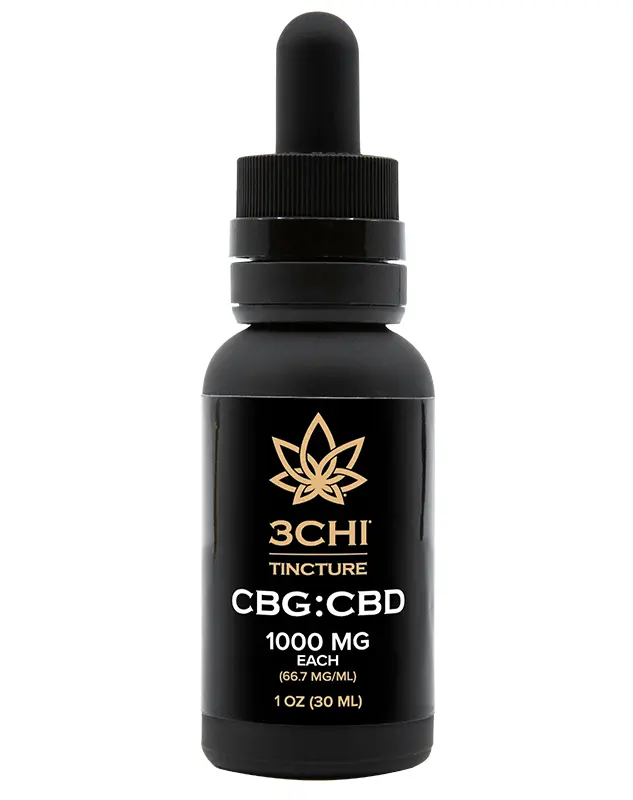CBG:CBD Oil – Understanding the Benefits and Differences
As the popularity of cannabinoid products continues to rise, many consumers find themselves intrigued by their options. Among these options, CBG (cannabigerol) and CBD (cannabidiol) are two of the most discussed cannabinoids. While both offer unique properties and potential health benefits, understanding their differences is key to utilizing them effectively. In this article, we will explore CBG oil and CBD oil, their distinct benefits, and how they can complement each other in your wellness routine.
What is CBG?
CBG is often referred to as the “mother of all cannabinoids.” This title comes from the fact that it serves as the precursor to other cannabinoids, including CBD and THC (tetrahydrocannabinol). CBG is typically found in lower concentrations in cannabis plants, often making up only 1% of the plant’s total cannabinoids. However, its potential benefits have caught the attention of researchers and consumers alike.
One of the most compelling aspects of CBG is its non-psychoactive nature, similar to CBD. This means that, like CBD, CBG does not produce the high associated with THC. Instead, CBG is being studied for its potential therapeutic effects, which include anti-inflammatory properties, neuroprotective qualities, and potential benefits for bowel health and appetite stimulation.
What is CBD?
CBD has rapidly gained recognition over the last few years as a popular natural remedy for a variety of ailments. Derived from the cannabis plant, CBD oil is known for its calming effects, making it a go-to option for those looking to alleviate stress, anxiety, and pain. Unlike THC, CBD is entirely non-psychoactive, allowing users to enjoy its benefits without the mind-altering effects of cannabis.
Research has highlighted CBD’s potential benefits in treating a wide range of conditions, from chronic pain and inflammatory disorders to anxiety and sleep disturbances. Many users report improved mood, better sleep quality, and reduced discomfort after incorporating CBD oil into their daily routines.
CBG vs. CBD: Key Differences
While both CBG and CBD share similarities, their distinct roles in the cannabinoid spectrum set them apart. The differences between CBG and CBD can be summarized as follows:
1. Chemical Structure: While both cannabinoids share a similar chemical formula, their slightly varied structures lead to different interactions with the body’s endocannabinoid system. This system plays a crucial role in regulating various physiological processes, such as mood, appetite, and immune response.
2. Health Benefits: CBG is emerging as a promising candidate for targeted health issues like inflammatory bowel disease, while CBD is best known for its broad-spectrum support against anxiety, stress, and chronic pain. Each cannabinoid shines in its specific pasture of wellness.
3. Availability and Concentration: CBG is often found in lower concentrations than CBD in most hemp plants, which can make sourcing pure CBG products more challenging. On the other hand, CBD is more widely available, reflecting its popularity and higher extraction rates from hemp.
The Benefits of Combining CBG and CBD Oil
Using CBG and CBD oil together can potentially maximize the benefits of both cannabinoids, leveraging their individual strengths. Known as the “entourage effect,” this synergy occurs when multiple cannabinoids work together to produce a more significant therapeutic effect than when used independently.
By incorporating both CBG and CBD oil into your wellness regime, you may enhance overall efficacy. For example, while CBD may help manage anxiety and depression, CBG may address underlying inflammation, providing a holistic approach to mental wellness. The combined use of these cannabinoids can lead to more pronounced and beneficial results, making them a powerhouse duo in the realm of natural health.
How to Choose Between CBG and CBD Oil
When considering whether to use CBG or CBD oil, it is essential to reflect on your personal health needs and wellness goals. If you are looking for relief from anxiety, stress, or sleep issues, CBD might be the more suitable choice. However, if you are focusing on addressing inflammation or specific gastrointestinal conditions, CBG could prove more beneficial.
It’s also worthwhile to consider products that blend both CBG and CBD oil to harness the collective powers of each. Check the product labels for third-party testing, which ensures quality and purity, and research reputable brands to find the most effective options.
Conclusion
In conclusion, CBG and CBD oil both offer exciting potential for natural wellness. Understanding their unique properties and benefits can help consumers make informed choices that align with their health goals. Whether you opt for one cannabinoid or choose to incorporate both into your routine, the therapeutic possibilities are vast. With ongoing research uncovering more about cannabinoids every day, there’s no better time to explore the benefits of CBG and CBD oil in your journey toward better health.

Reviews
There are no reviews yet.